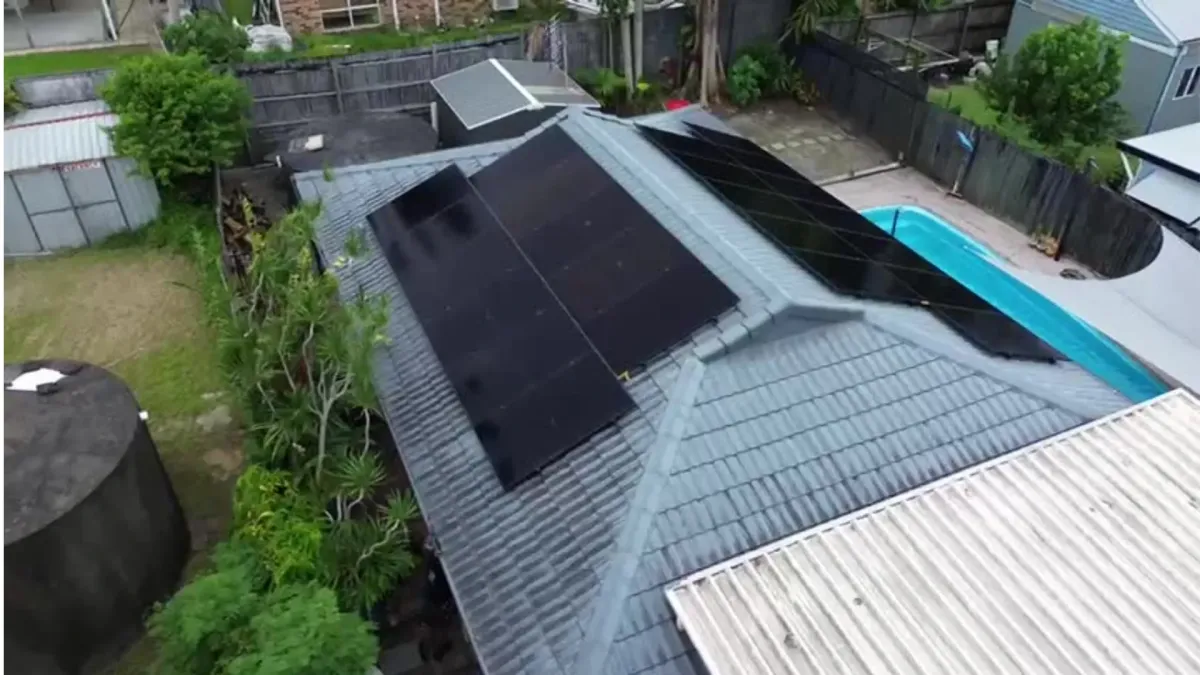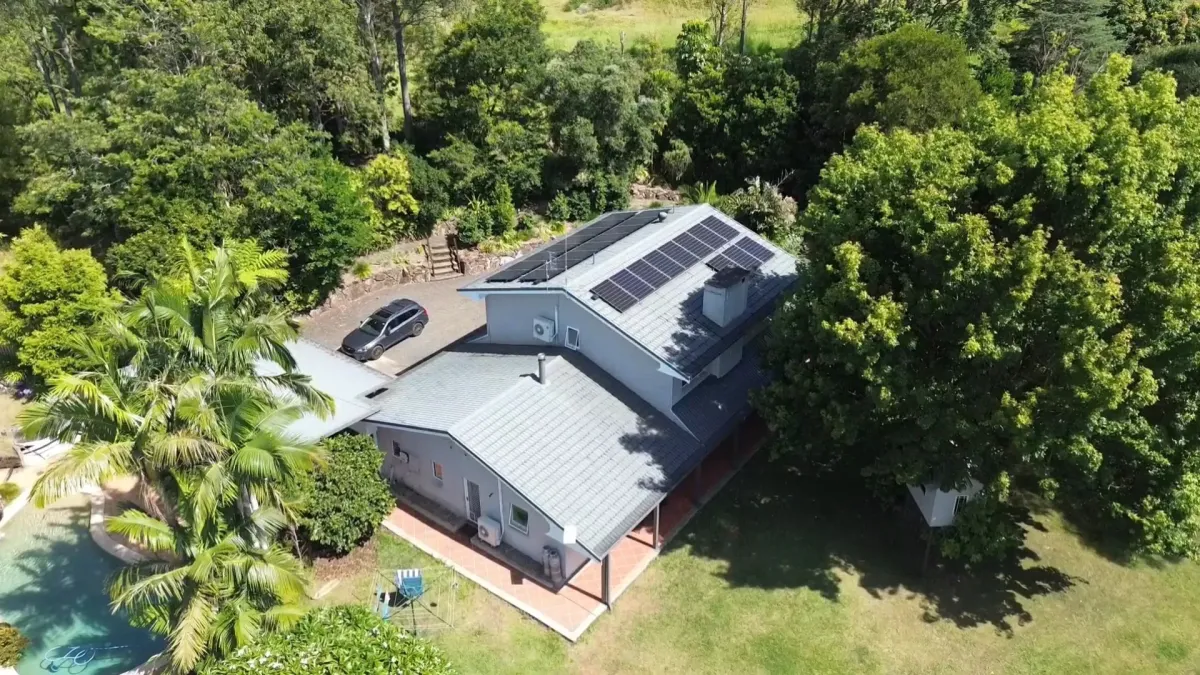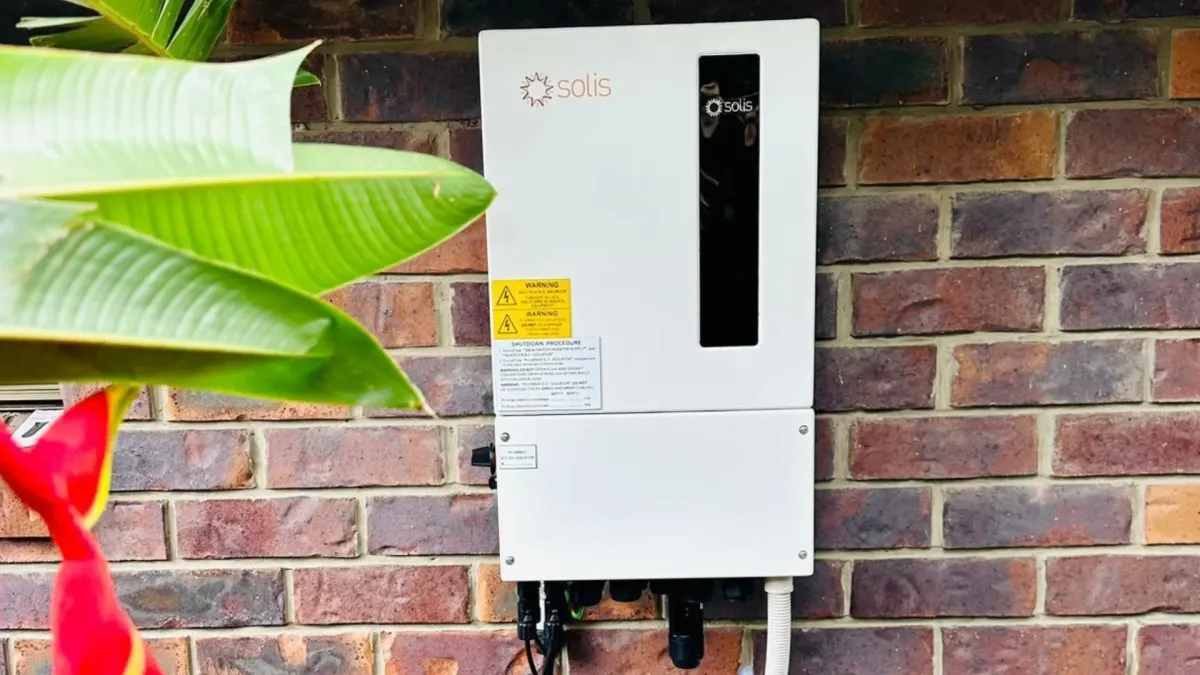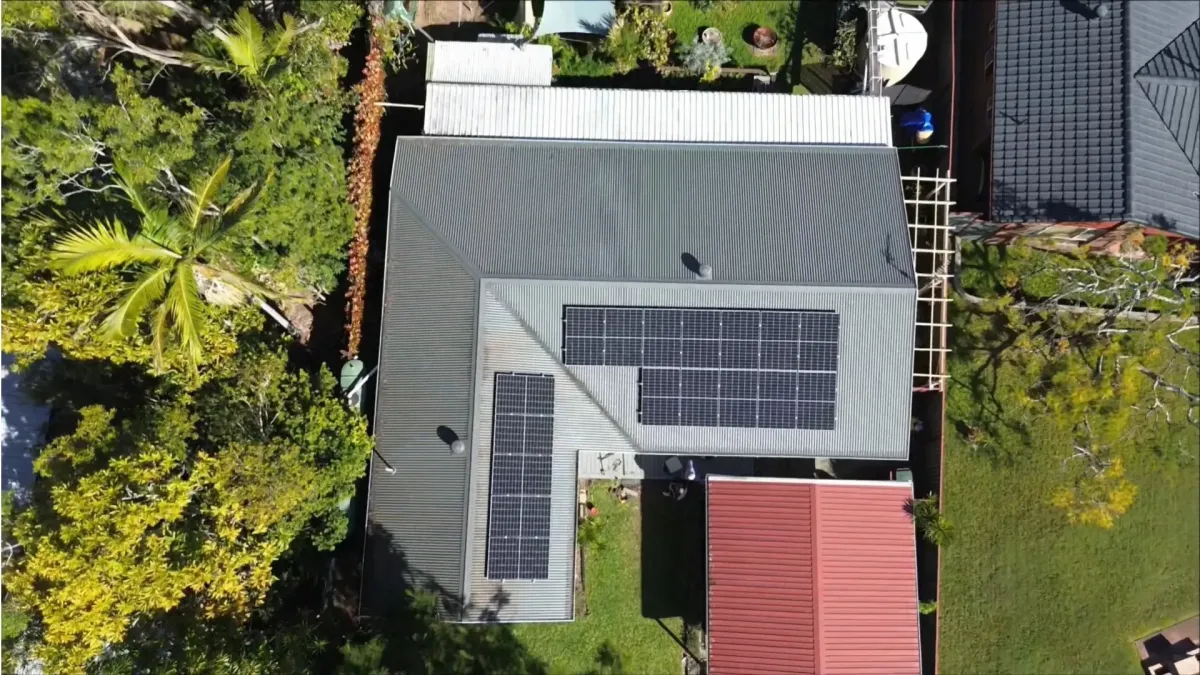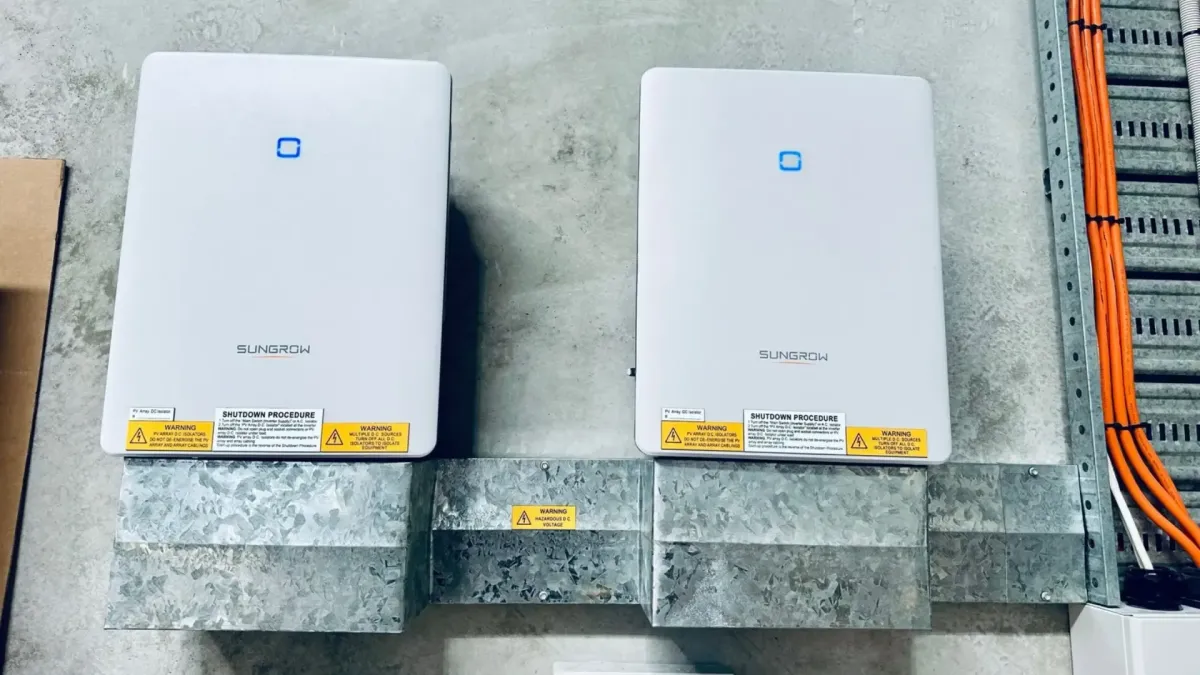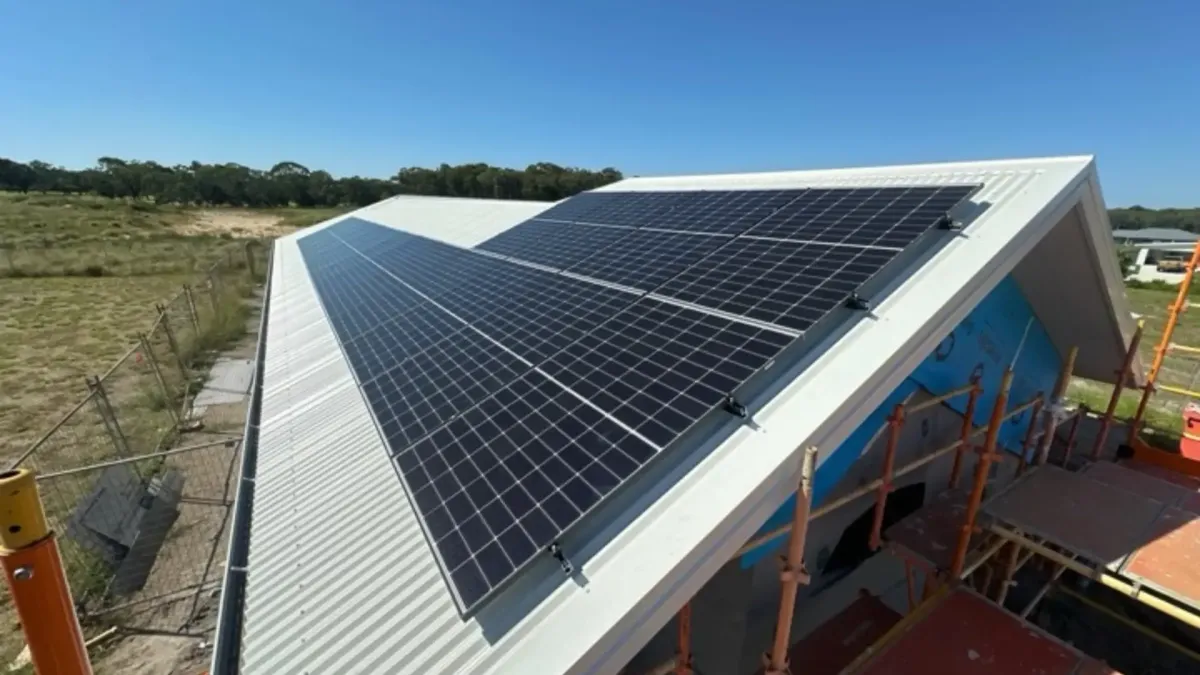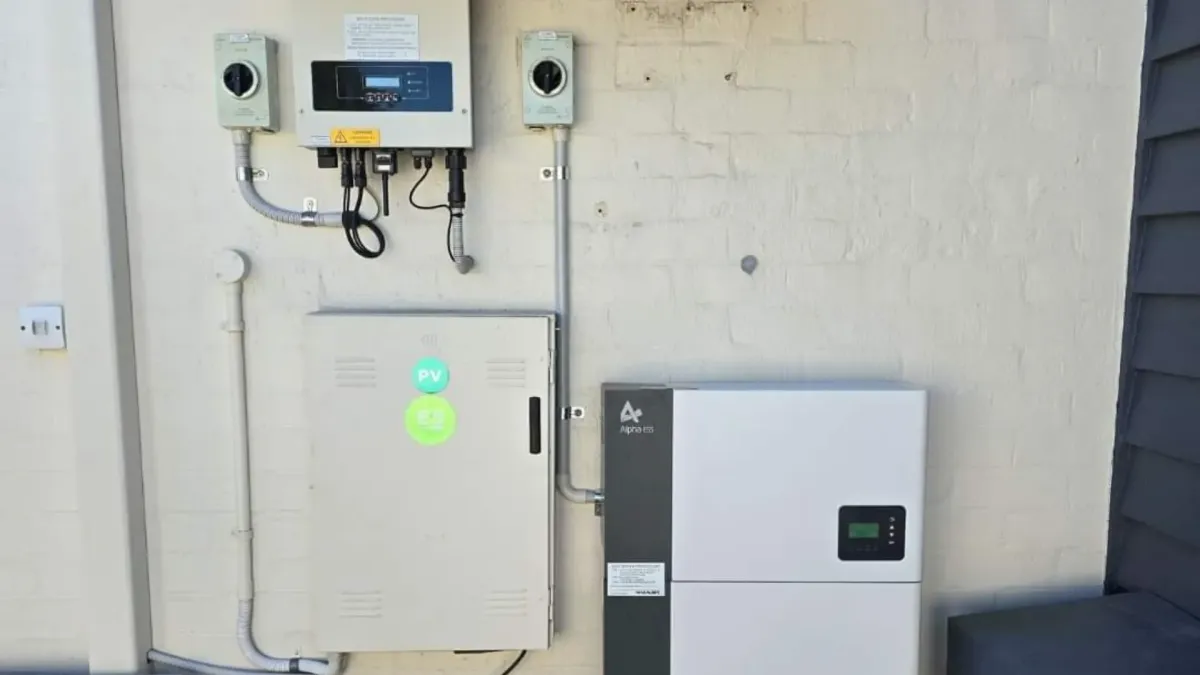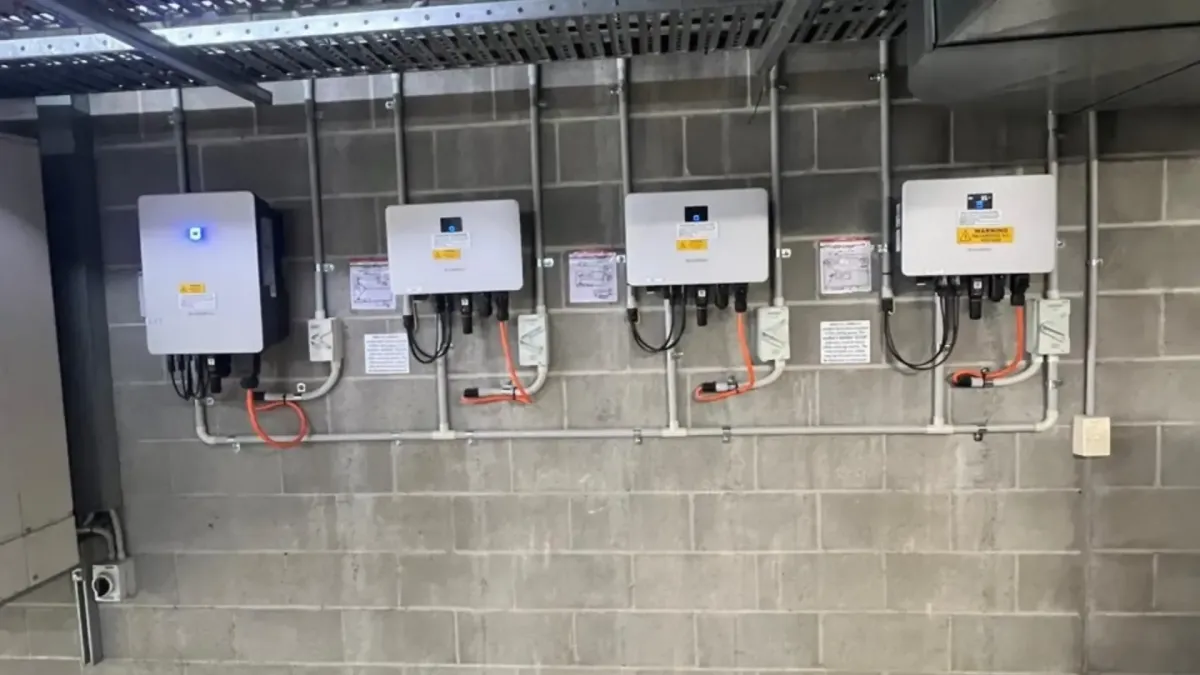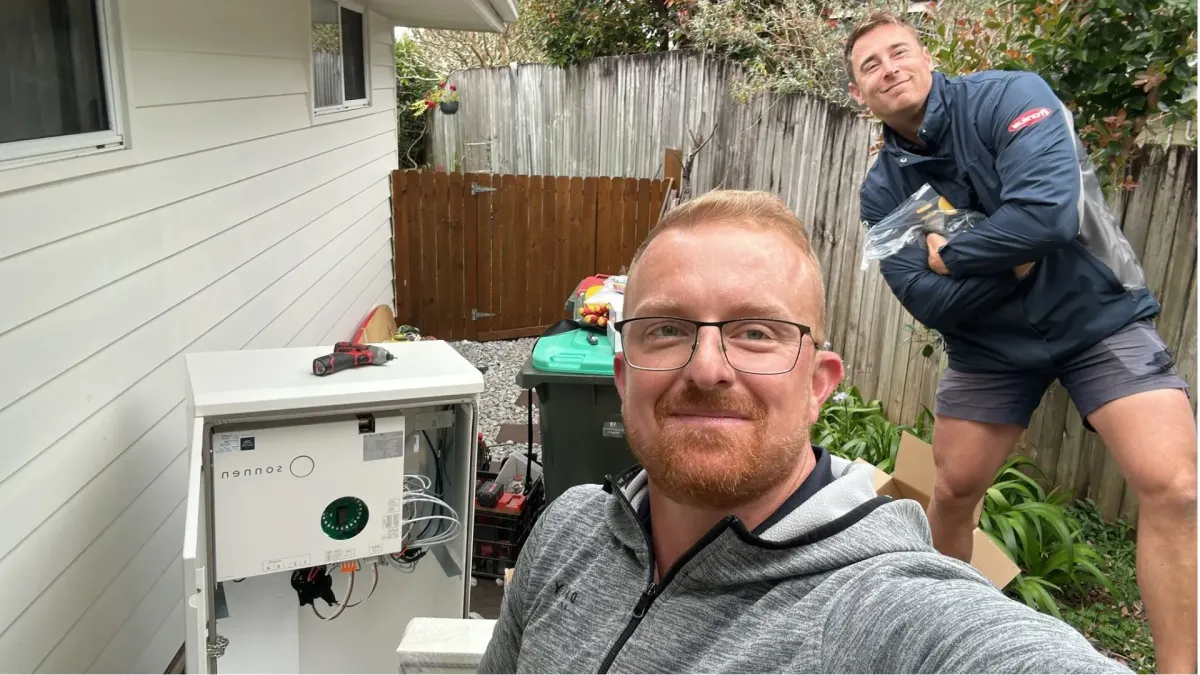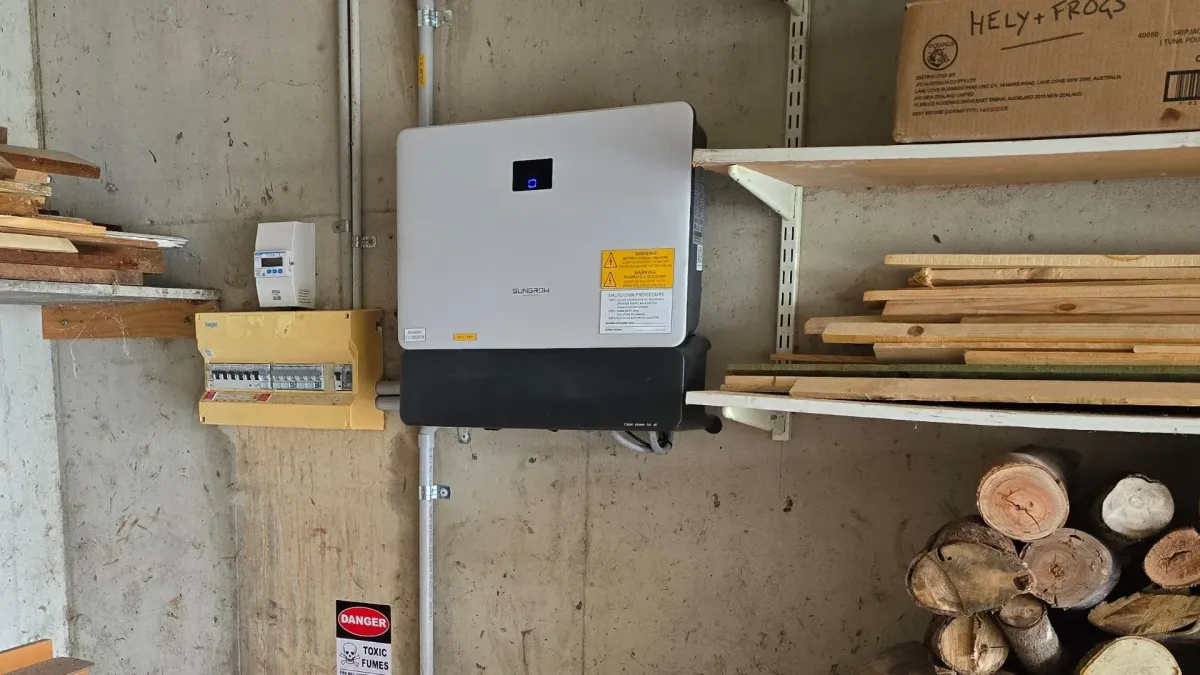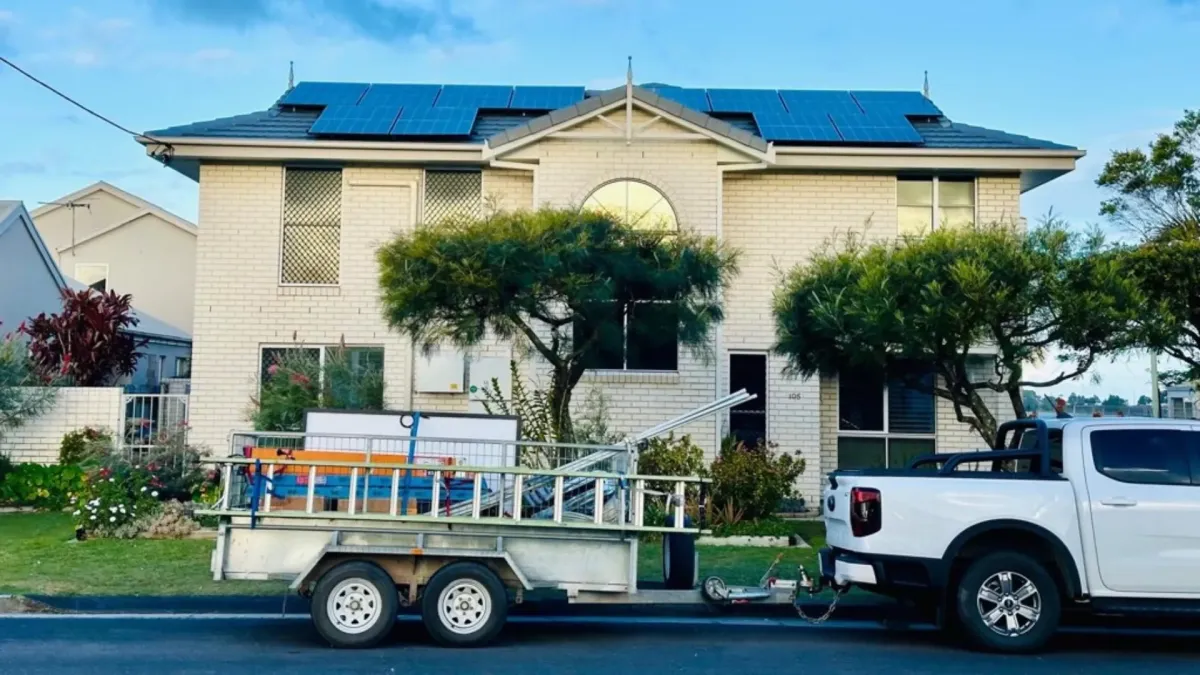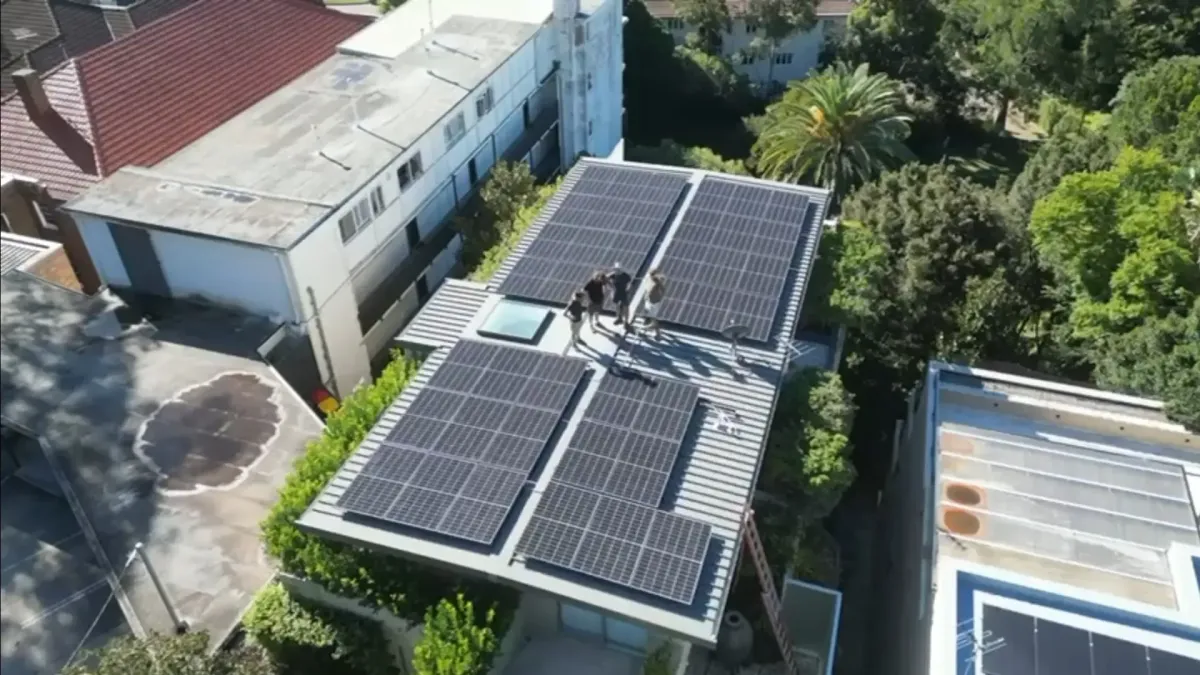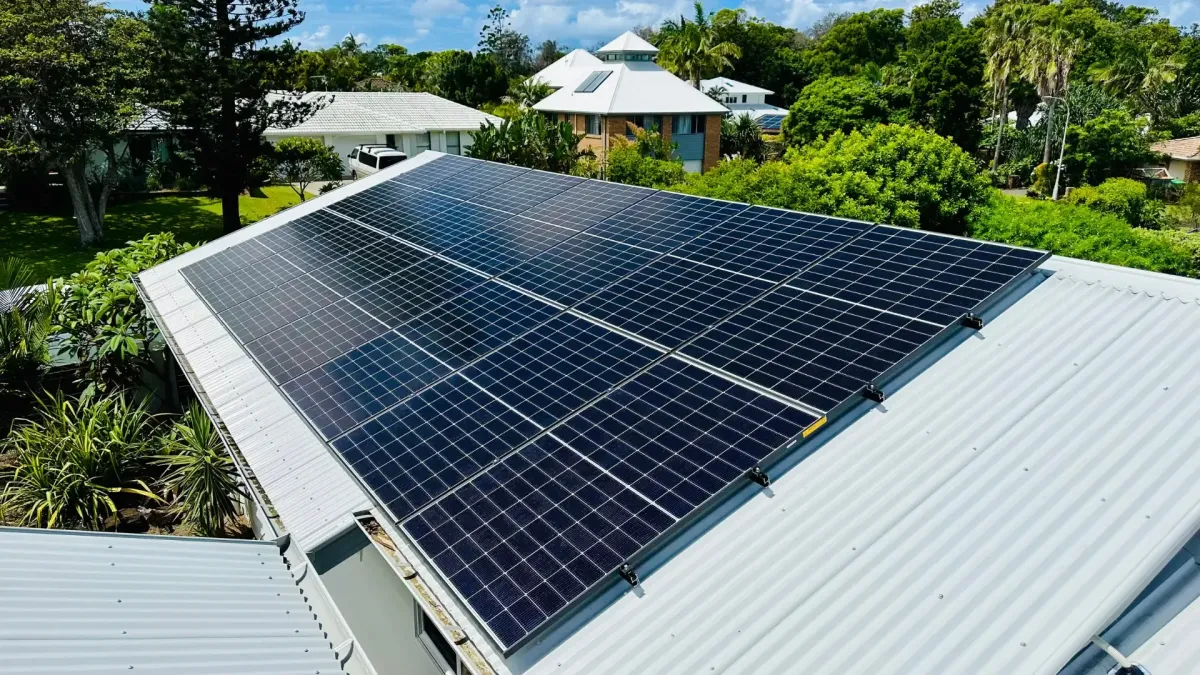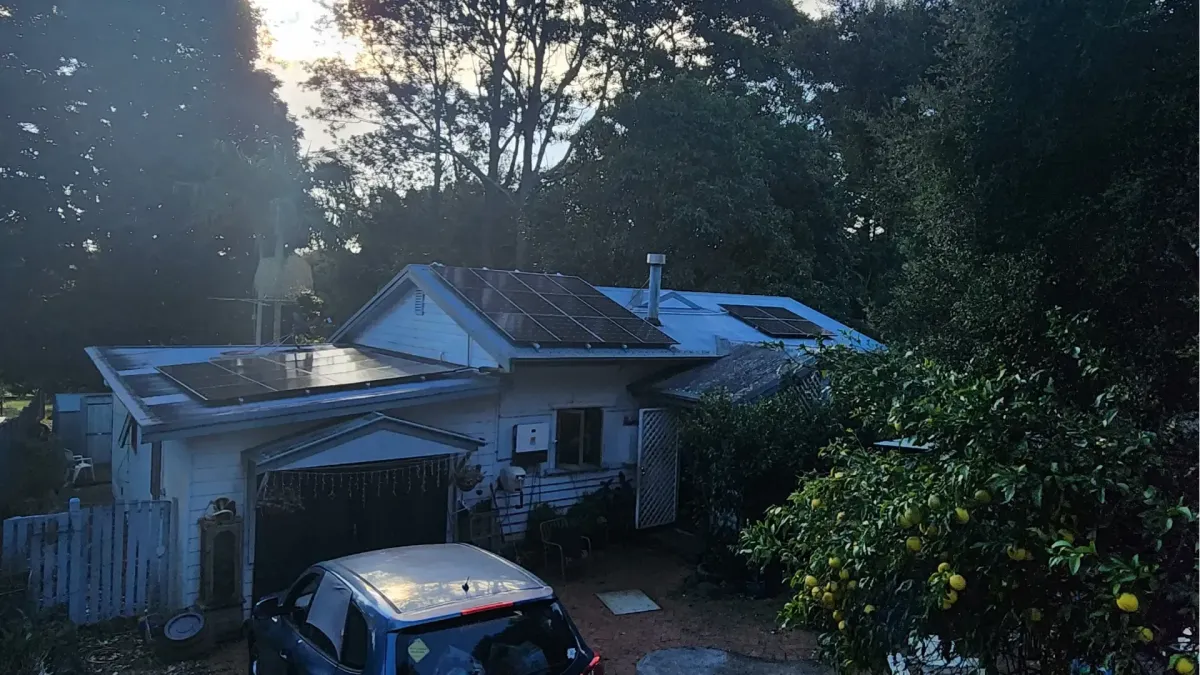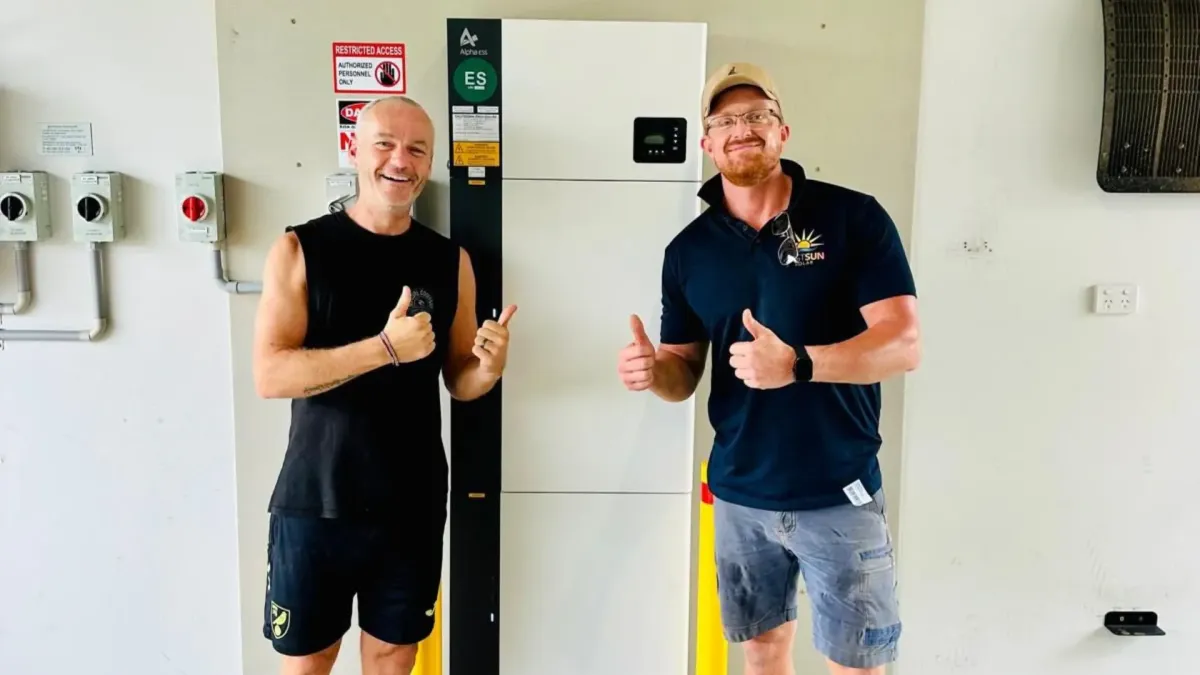
QUESTIONS?
JOIN OVER 1000 CUSTOMERS
100% AUSSIE OWNED SOLAR
INSTALLATION COMPANY
Peace of mind by choosing local.

4.9/5 rating based on 80+ recent reviews

CUSTOM SOLAR SYSTEM DESIGN + FREE QUOTE
GET Expert Guidance Navigating Brand Selection
GET Expert Guidance WITH
Navigating Brand Selection
Our team of experts are here to guide you through the solar installation process, helping you navigate the vast array of brands to design the perfect system for your home or business. Enjoy a complimentary solar assessment and obligation-free quote with absolutely zero sales pressure – because decisions as important as these shouldn't be rushed...
Our team of experts are here to guide you through the solar installation process, helping you navigate the vast array of brands to design the perfect system for your home or business. Enjoy a complimentary solar assessment and obligation-free quote with absolutely zero sales pressure – because decisions as important as these shouldn't be rushed...
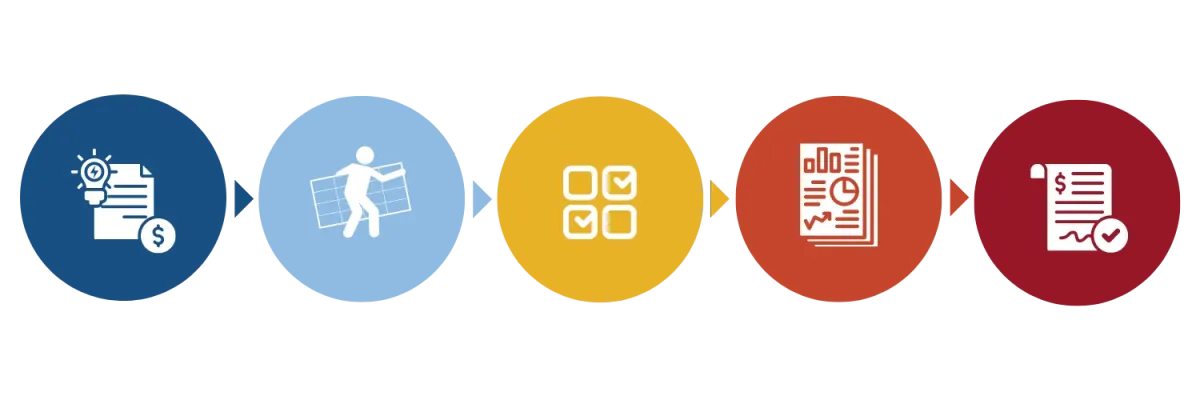
BILL BREAKDOWN
We'll dissect your energy bill, identifying areas for savings.
SOLAR STRATEGY
We'll design a tailored solar system specific to your needs.
BRAND SELECTION
We'll help you navigate panel, invertor, and battery selection.
SAVINGS REPORT
We'll generate a savings report for your setup and property.
FREE QUOTE
We'll leave you with an obligation free quote for your solar install.
INstall With Peace of mind

BILL BREAKDOWN
We'll dissect your energy bill, identifying areas for savings.
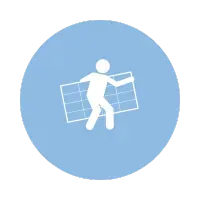
SOLAR STRATEGY
We'll design a tailored solar system specific to your needs.
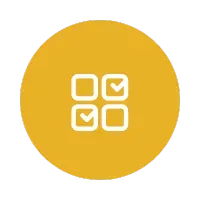
BRAND SELECTION
We'll help you navigate panel, invertor, and battery selection.
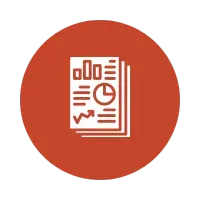
SAVINGS REPORT
We'll generate a savings report for your setup and property.
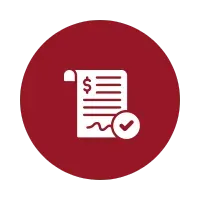
FREE QUOTE
We'll leave you with an obligation free quote for your solar install.
INstall With Peace of mind
Solar Packages
Find A Suitable Sized System
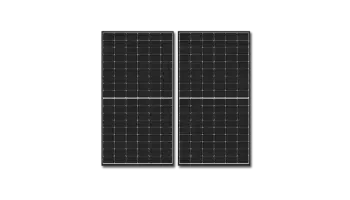
6.6kW
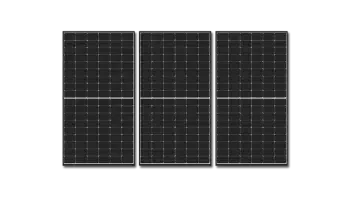
10kW
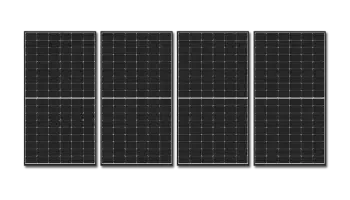
13.2kW
Solar Packages
Find A Suitable Sized System For Your Property

6.6kW

10kW

13.2kW
Convert Solar Energy Into Savings
Beat Rising Electricity Prices With Solar & Battery Storage



(Data from a recent installation - results are an example only)
Save With Solar Energy
Beat Rising Electricity Prices



(Data from a recent installation - results are an example only)
Solar Products
Find The Right Solar Technology

PANELS

INVERTERS

BATTERIES

EV CHARGERS
In-APP Monitoring
Keep Track Of Your Production
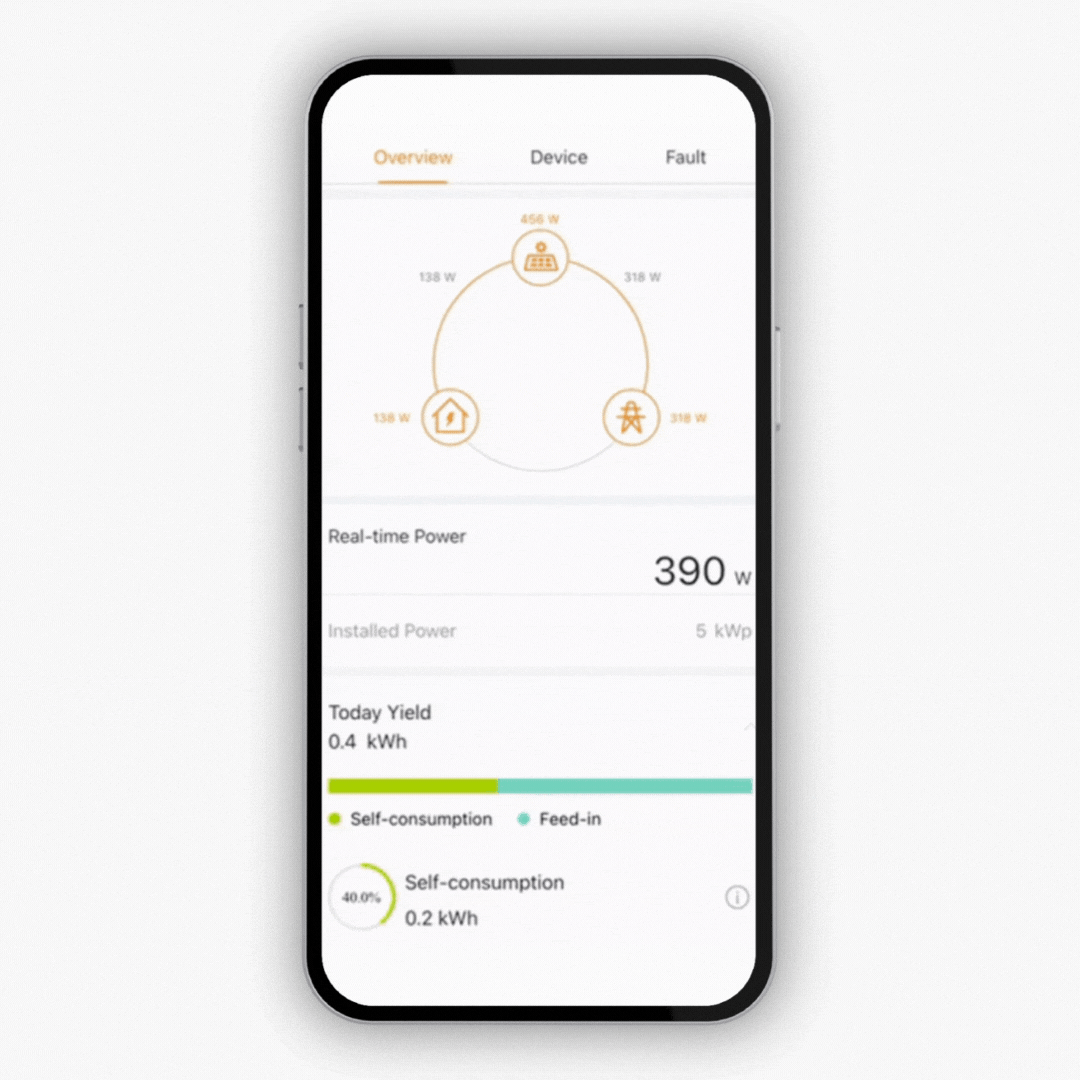
(GIF is for illustrative purposes only)
Our Solar Energy Services
Installations For Every Situation

RESIDENTIAL INSTALLATIONS

COMMERCIAL INSTALLATIONS

GROUND MOUNT SYSTEMS

SOLAR SYSTEM DESIGN

OFF-GRID INSTALLATIONS

FINANCING A SOLAR SYSTEM
Solar Products
Find The Right Solar Technology

PANELS

INVERTERS

BATTERIES

EV CHARGERS
In-APP Monitoring Of Your Solar System
Keep Track Of Your Production & Consumption

(GIF is for illustrative purposes only)
Our Solar Energy Services
Solar Installations For Every Situation

RESIDENTIAL INSTALLATIONS

COMMERCIAL INSTALLATIONS

GROUND MOUNT SYSTEMS

SOLAR SYSTEM DESIGN

OFF-GRID INSTALLATIONS

FINANCING A SOLAR SYSTEM
INSIDE YOUR QUOTE
ESSENTIAL DETAILS ABOUT WARRANTIES, SAVINGS, & ENVIRONMENTAL ANALYSIS
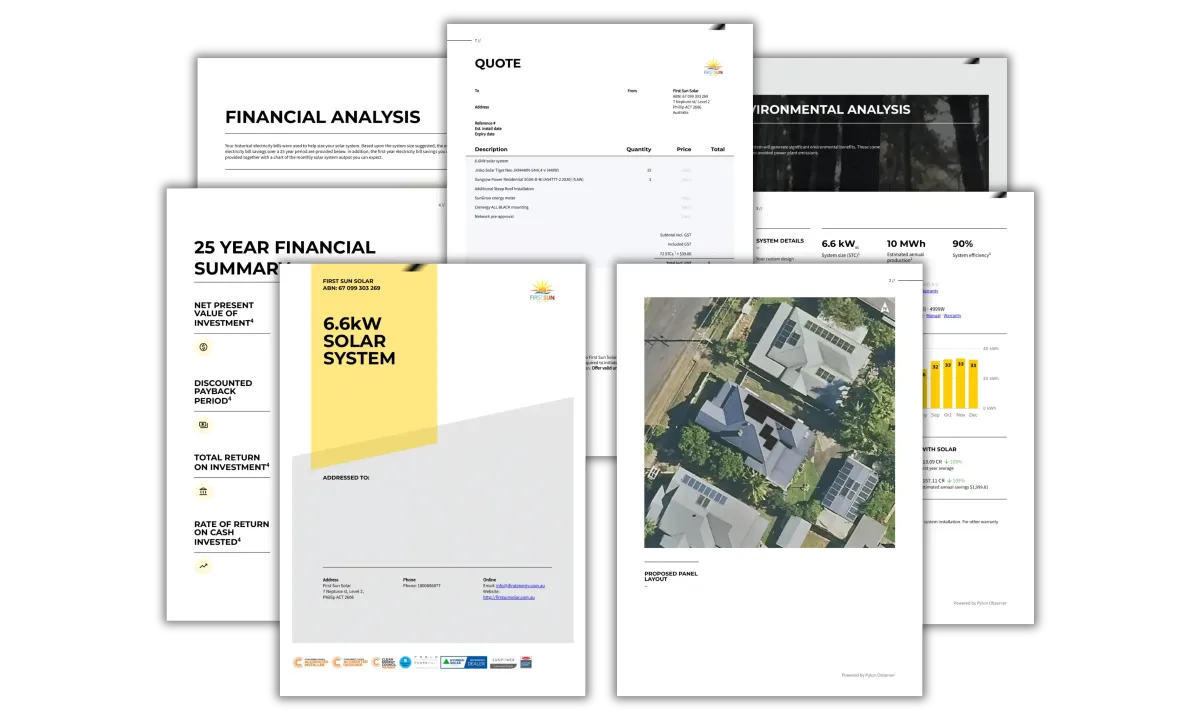
WHAT'S INCLUDED WITH YOUR QUOTE
ESSENTIAL DETAILS ABOUT WARRANTIES, SAVINGS, & ENVIRONMENTAL ANALYSIS

Why choose us for your solar install?
THE REASONS BEHIND 1000+ INSTALLS
100% Australian Owned
We're proudly locally owned and operated.
20 year workmanship warranty
We offer a 20 year warranty on all new solar installations.
NO Hidden Charges Or Sneaky Fees
You'll always know what to expect with no hidden fees.
$0 Upfront Financing Options
You may be eligible for a financed system with no cash upfront.
AFTER SALES SUPPORT TEAM
Our support doesn't end after your installation is complete.
Easy process from start to finish
We do all the heavy lifting, taking all the stress out of going solar.
ABSOLUTELY NO SALES PRESSURE!
Because decisions as important as these shouldn't be rushed...
Why choose us?
THE REASONS BEHIND 1000+ INSTALLS
100% Australian Owned
We're proudly locally owned and operated.
20 year workmanship warranty
We offer a 20 year warranty on all new solar installations.
NO Hidden Charges Or Sneaky Fees
You'll always know what to expect with no hidden fees.
$0 Upfront Financing Options
You may be eligible for a financed system with no cash upfront.
AFTER SALES SUPPORT TEAM
Our support doesn't end after your installation is complete.
Easy process from start to finish
We do all the heavy lifting, taking all the stress out of going solar.
ABSOLUTELY NO SALES PRESSURE!
Because decisions as important as these shouldn't be rushed...
Trusted by Homeowners Australia-wide
What Our Customers Said About Their Installation
Trusted Australia-wide
What Our Customers Said
RECENT INSTALLATIONS
Capturing Our Latest Solar Projects
RECENT INSTALLATIONS
Our Latest Solar Projects
Frequently Asked Questions
What Homeowners Ask Before Going Solar
How long does the solar installation process take?
The installation timeframe varies based on the system size and complexity, but most residential installs are completed within a day. Some larger or more complex installations may require longer.
Typically most installations are completed within 2-4 weeks from placing an order.
Can I add a solar battery to my existing solar system?
Yes, it is possible to retrofit an existing solar system with a battery bank. For typical daily residential use, between 5kWh - 15kWh of storage is appropriate.
Some brands offer blackout protection by continuously providing power in case of a grid outage.
If the existing system is less than 6.6kW, consider adding additional panels to ensure you are producing enough electricity to fill your battery.
What is the cost of installing a solar system with First Sun Solar?
The cost varies based on factors such as system size, brand selection, roof type, and installation complexity. We offer personalized quotes during our free solar assessment, ensuring transparency and no hidden fees. First Sun Solar are positioned in the market as a high quality retailer with well priced systems that fit the needs of any budget.
What types of solar systems does First Sun Solar install?
We install solar and battery systems for on-grid and off-grid applications and only us reliable tier 1 panels, inverters and batteries.
What size solar system is appropriate for my home?
The appropriate size depends on your energy consumption, roof space, and budget.
Typically, residential needs range from 6.6kW-20kW of panels and 5-20kWh of battery storage.
Our experts at First Sun Solar can conduct a thorough assessment of your energy needs and recommend the ideal system size for you.
Do I qualify for a solar rebate?
Whilst STC's are not considered a 'rebate', if you buy a solar system in 2024, it is subsidised by a federal government scheme worth about $396 per kW installed. This is based on a $39 STC price after fees. That’s approximately $2,457 off a 6.6kW system, which is applied at the point of sale.
Current legislation means the solar rebate started to reduce by one fifteenth every year from Jan 2017 until it drops to zero in 2031.
The $1000's of dollars you get off your solar system price (usually by assigning the rights to its STCs to your installer) does not actually come from the government, but rather compels other people to buy your certificates. So it is a government run scheme, using other people’s money to provide the subsidy.
STCs are allocated to a renewable energy system using the following formula:
Postcode Zone Rating x Deeming Period Years x System Size in kW = Number of STCs created
The only criteria for claiming it are:
1) Your PV system is less than 100kW in size.
2) You get it installed and designed by a Clean Energy Council accredited professional.
What are Solar Feed-In Tariffs (FIT)?
Solar Feed-In Tariffs (FIT) are programs where homeowners or businesses are paid for the excess electricity their solar panels generate and feed back into the grid. The amount paid per kilowatt-hour (kWh) will depend on which energy retailer you use and what specific plan you are on.
Typically, you might receive anywhere from 5c-20c/kWh for providing energy back into the grid.
There are no longer any federal or state rebates for feed-in-tariffs, thus you will only receive what your energy retailer pays you.
Am I really saving Money by going solar?
Yes, transitioning to solar energy can lead to substantial long-term savings. While the initial installation cost may vary based on the size of the system and specific requirements, solar panels typically have a lifespan of 25 years or more. During this time, you'll generate your own electricity, reducing reliance on the grid and lowering your monthly energy bills. Additionally, government incentives, rebates, and the potential to earn credits through Solar Feed-In Tariffs (FIT) can enhance your savings. Our team at First Sun Solar can provide a personalized assessment, outlining the potential cost savings specific to your property and energy consumption patterns.
A standard 6.6kw solar system will save the average household around $2000 on their electricity costs per year.
Depending on the final costs, most systems will "pay for themselves" within 2-5 years.
What is the warranty on a solar system?
We install solar products that come with industry-standard warranties, ensuring long-term performance and peace of mind for our customers.
Panels = 25 years +
Inverters = 5 years +
Batteries = 10 years +
Workmanship = 20 years
What kind of maintenance is required for a solar system?
Solar systems generally require minimal maintenance. Although, it is advisable to clean solar panels annually to ensure optimal performance (pending on your local environment you may need to clean twice yearly). Whilst solar panels are designed to be self-cleaning to some extent, dust, dirt, bird droppings, and other debris can accumulate over time and reduce efficiency. Cleaning helps maintain the panels' effectiveness and ensures they can capture the maximum amount of sunlight. However, this should be done carefully by only using a soft brush or sponge and mild detergent to avoid damaging the panels. If you're unsure or prefer professional assistance, the team at First Sun Solar can provide guidance and services to keep your solar system in peak condition.
Will solar panels work during cloudy days?
Yes, solar panels can still generate electricity on cloudy days, although their efficiency will be reduced compared to sunny days.
While direct sunlight is optimal for maximum power production, solar panels can still harness diffused sunlight and UV rays that penetrate through clouds.
When it's overcast you may see a production drop to 50%.
During heavy thunderstorms you may see production drop to 10%.
Frequently Asked Questions
What TO Ask Before Going Solar
How long does the solar installation process take?
The installation timeframe varies based on the system size and complexity, but most residential installs are completed within a day. Some larger or more complex installations may require longer.
Typically most installations are completed within 2-4 weeks from placing an order.
Can I add a solar battery to my existing solar system?
Yes, it is possible to retrofit an existing solar system with a battery bank. For typical daily residential use, between 5kWh - 15kWh of storage is appropriate.
Some brands offer blackout protection by continuously providing power in case of a grid outage.
If the existing system is less than 6.6kW, consider adding additional panels to ensure you are producing enough electricity to fill your battery.
What is the cost of installing a solar system with First Sun Solar?
The cost varies based on factors such as system size, brand selection, roof type, and installation complexity. We offer personalized quotes during our free solar assessment, ensuring transparency and no hidden fees. First Sun Solar are positioned in the market as a high quality retailer with well priced systems that fit the needs of any budget.
What types of solar systems does First Sun Solar install?
We install solar and battery systems for on-grid and off-grid applications and only us reliable tier 1 panels, inverters and batteries.
What size solar system is appropriate for my home?
The appropriate size depends on your energy consumption, roof space, and budget.
Typically, residential needs range from 6.6kw-20kw of panels and 5-20kWh of battery storage.
Our experts at First Sun Solar can conduct a thorough assessment of your energy needs and recommend the ideal system size for you.
Do I qualify for a solar rebate?
Whilst STC's are not considered a 'rebate', if you buy a solar system in 2024, it is subsidised by a federal government scheme worth about $396 per kW installed. This is based on a $39 STC price after fees. That’s approximately $2,457 off a 6.6kW system, which is applied at the point of sale.
Current legislation means the solar rebate started to reduce by one fifteenth every year from Jan 2017 until it drops to zero in 2031.
The $1000's of dollars you get off your solar system price (usually by assigning the rights to its STCs to your installer) does not actually come from the government, but rather compels other people to buy your certificates. So it is a government run scheme, using other people’s money to provide the subsidy.
STCs are allocated to a renewable energy system using the following formula:
Postcode Zone Rating x Deeming Period Years x System Size in kW = Number of STCs created
The only criteria for claiming it are:
1) Your PV system is less than 100kW in size.
2) You get it installed and designed by a Clean Energy Council accredited professional.
What are Solar Feed-In Tariffs (FIT)?
Solar Feed-In Tariffs (FIT) are programs where homeowners or businesses are paid for the excess electricity their solar panels generate and feed back into the grid. The amount paid per kilowatt-hour (kWh) will depend on which energy retailer you use and what specific plan you are on.
Typically, you might receive anywhere from 5c-20c/kWh for providing energy back into the grid.
There are no longer any federal or state rebates for feed-in-tariffs, thus you will only receive what your energy retailer pays you.
Am I really saving Money by going solar?
Yes, transitioning to solar energy can lead to substantial long-term savings. While the initial installation cost may vary based on the size of the system and specific requirements, solar panels typically have a lifespan of 25 years or more. During this time, you'll generate your own electricity, reducing reliance on the grid and lowering your monthly energy bills. Additionally, government incentives, rebates, and the potential to earn credits through Solar Feed-In Tariffs (FIT) can enhance your savings. Our team at First Sun Solar can provide a personalized assessment, outlining the potential cost savings specific to your property and energy consumption patterns.
A standard 6.6kw solar system will save the average household around $2000 on their electricity costs per year.
Depending on the final costs, most systems will "pay for themselves" within 2-5 years.
What is the warranty on a solar system?
We install solar products that come with industry-standard warranties, ensuring long-term performance and peace of mind for our customers.
Panels = 25 years +
Inverters = 5 years +
Batteries = 10 years +
Workmanship = 20 years
What kind of maintenance is required for a solar system?
Solar systems generally require minimal maintenance. Although, it is advisable to clean solar panels annually to ensure optimal performance (pending on your local environment you may need to clean twice yearly). Whilst solar panels are designed to be self-cleaning to some extent, dust, dirt, bird droppings, and other debris can accumulate over time and reduce efficiency. Cleaning helps maintain the panels' effectiveness and ensures they can capture the maximum amount of sunlight. However, this should be done carefully by only using a soft brush or sponge and mild detergent to avoid damaging the panels. If you're unsure or prefer professional assistance, the team at First Sun Solar can provide guidance and services to keep your solar system in peak condition.
Will solar panels work during cloudy days?
Yes, solar panels can still generate electricity on cloudy days, although their efficiency will be reduced compared to sunny days.
While direct sunlight is optimal for maximum power production, solar panels can still harness diffused sunlight and UV rays that penetrate through clouds.
When it's overcast you may see a production drop to 50%.
During heavy thunderstorms you may see production drop to 10%.
Ready To Go Solar?
Ready To Go Solar?
Copyright © 2026 | FirstSunSolar
Copyright 2026 | First Sun Solar












